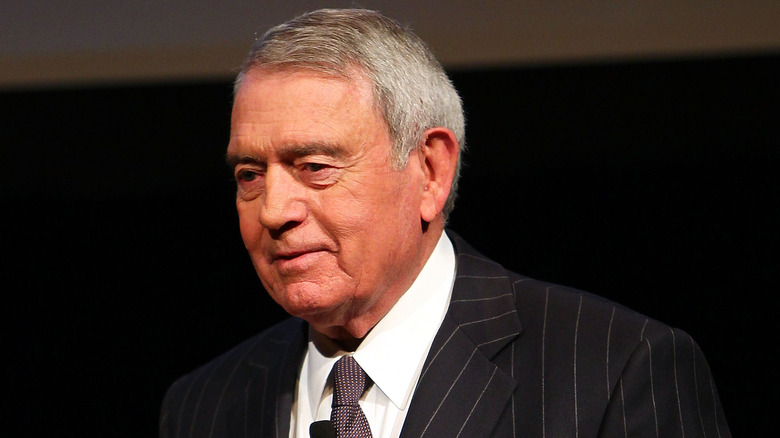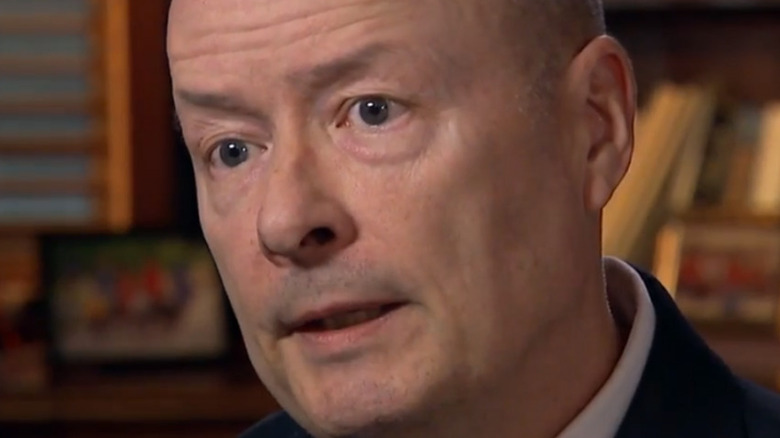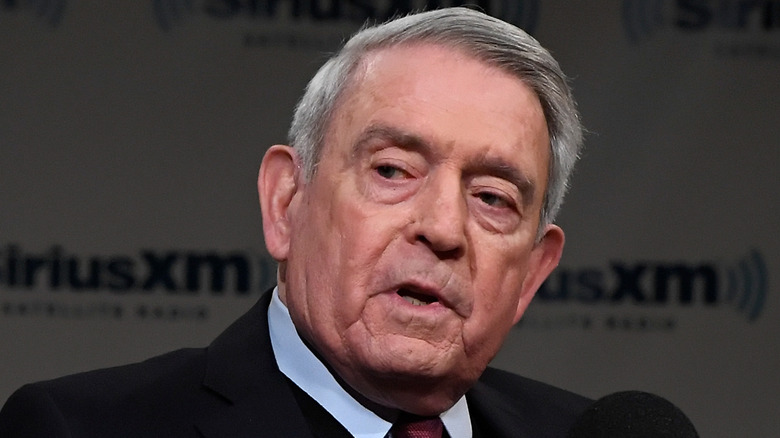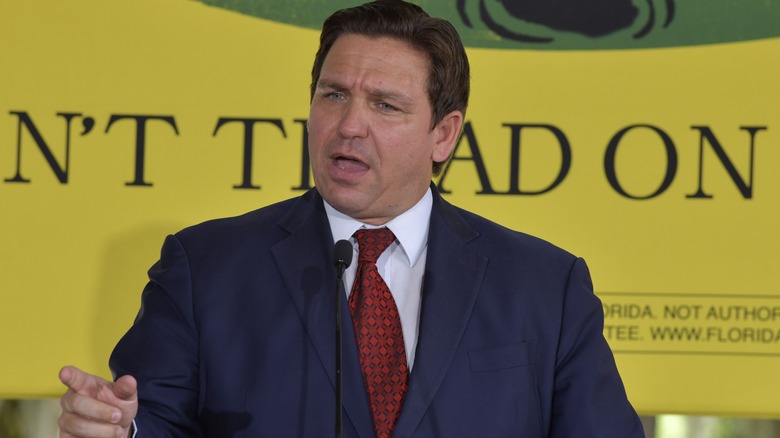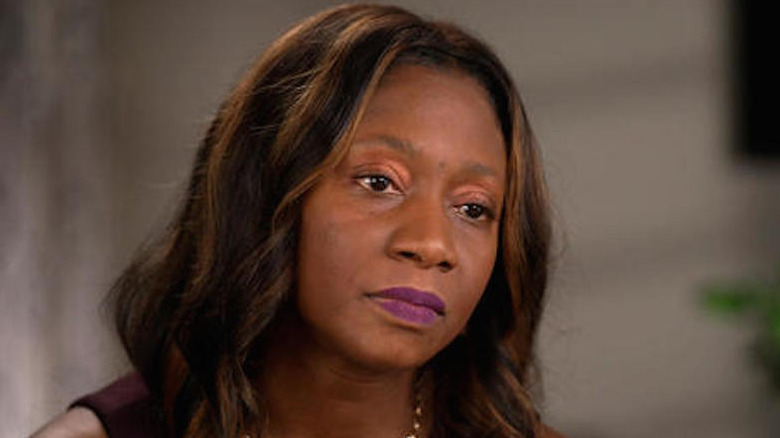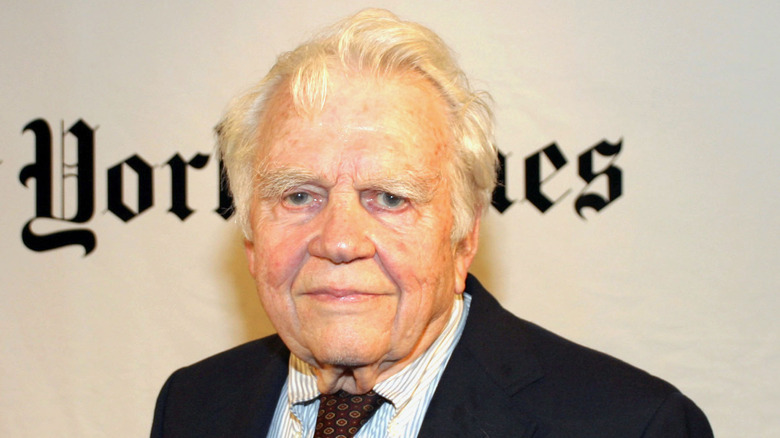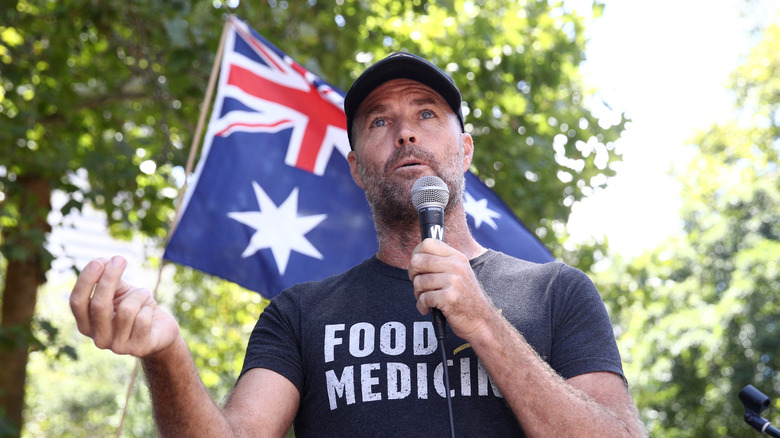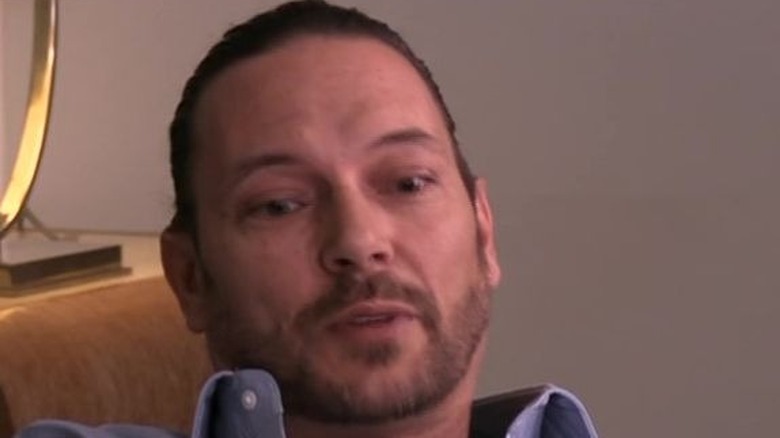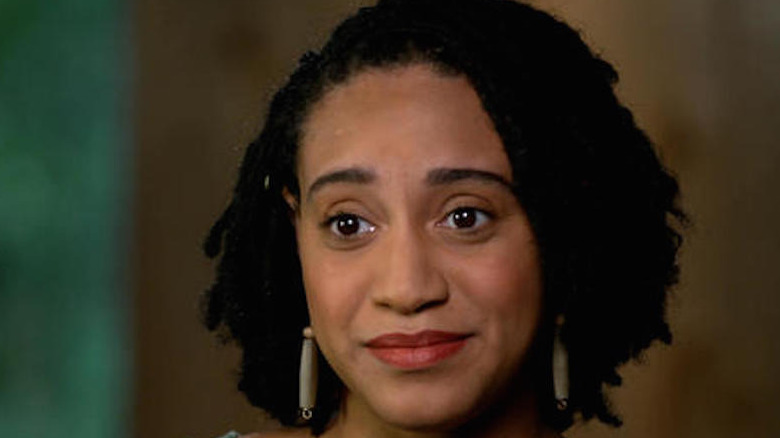60 Minutes Episodes That Really Upset Fans The Most
Since 1968, the CBS news magazine program "60 Minutes" has sought to provide viewers with in-depth, reporter-driven information on the social, political, and cultural topics of the day. Its reputation for hard-hitting journalism that eschewed the digest-sized coverage of other network and local news programs has made it a television institution with more than 160 Emmys and 25 Peabody Awards—the most of any news program in TV history—to support that claim. It's also become a brand unto itself, spawning multiple spin-off series (including "60 Minutes+" on Paramount+) and international versions in countries across the globe, including Australia, New Zealand, Germany, and Mexico.
"60 Minutes" has not only reported on the news but also made headlines on occasion, most notably Mike Wallace's 1996 interview with former tobacco industry executive Jeffrey Wigand, which formed the basis for Michael Mann's film "The Insider." Like any news source, it has also drawn attention for delivering stories fueled by unconfirmed sources, errant information, and misguided writing and production. Following is a list of the "60 Minutes" episodes that upset fans enough to sound off about them.
John Miller soft-pedals a story on the NSA
On December 15, 2013, "60 Minutes" aired "Inside the NSA," a report on the National Security Agency that drew immediate attention from the media and viewers on two fronts. The correspondent chosen to report on the story was John Miller, a former deputy commissioner for the New York Police Department and spokesperson for the Federal Bureau of Investigation (FBI). Many viewed Miller as a curious choice to bring viewers behind the scenes at another intelligence agency and interview its director, General Keith Alexander.
But Miller's presence was less controversial than the tone of the report itself, which seemed to take a hands-off approach to controversial topics, including the NSA's practice of bulk collecting phone record metadata—which includes contacts, phone numbers, and duration of calls—from American citizens. Documents leaked by former NSA contractor Edward Snowden showed that the NSA mined data from private calls on a regular basis, but when questioned by Miller, Alexander denied that the practice exceeded "more than 60 authorizations on specific persons." Miller appeared to lead the general towards his answer ("You don't hear the call," he noted) and even allowed him to take a brief time out before answering a question.
Response from the media to Miller's report was nothing short of scathing. "Wow, the 60 Minutes piece about the NSA was just embarrassing," wrote the New Yorker's Ryan Lizza on Twitter, while Politico described the coverage as a "promotional puff-piece." Adding insult to injury was a ruling one day after the story aired by Judge Richard Leon, who declared the NSA's metadata collection as unconstitutional under the Fourth Amendment.
CBS apologized for report on Benghazi
CBS and "60 Minutes" earned a black eye earlier in 2013 over a report filed by South African journalist Lara Logan on October 27, 2013, about the 2012 attack on the U.S. diplomatic compound in Benghazi, Libya that resulted in the death of four Americans, including Ambassador Christopher Stevens. Logan, who served as the Chief Foreign Affairs Correspondent for CBS News, sought to question whether the administration of then-President Barack Obama had utilized enough force to repeal the attack by terrorists.
Logan interviewed security consultant Dylan Davies, who claimed that he disobeyed orders from his employer, the security firm Blue Mountain, to stay away from the compound and engaged in combat with militants there. But after the segment was aired, various media sources cited an FBI interview with Davies that contradicted his claim and noted that he had never left the villa he occupied in Libya on the night of the embassy attack. Davies denied giving such testimony to federal authorities. CBS News initially defended the report before conducting an internal review that revealed Logan and her production team had not properly vetted his story, and that "60 Minutes" would issue a correction.
Logan apologized for the errors on "CBS This Morning" shortly before the network asked her to take a leave of absence for her oversight. CBS News's executive director of Standards and Practices noted in a memo that Logan had further compounded the problem by giving a speech criticizing the Obama administration's handling of the Benghazi attack. She has since cycled through various conservative news outlets while also making inflammatory statements about COVID, AIDS, Ukrainian president Volodymyr Zelenskyy, and other topics, several of which have resulted in her dismissal from news agencies.
A report on George W. Bush got 4 staffers fired
Producers and spokespersons for "60 Minutes" have apologized for alleged factual errors on several occasions throughout the program's long history, but as the Lara Logan story showed, it's rare that a problematic report resulted in the dismissal of production team members. An exception to this rule was the fallout from a report about President George W. Bush's military service record.
The segment by Dan Rather alleged that Bush had failed to fulfill the requirements for the Texas Air National Guard, where he served between 1968 and 1973. Charges of a spotty service record had dogged Bush throughout his presidential campaigns in 2000 and 2004, but the "60 Minutes" report cited documents that alleged that Bush had disobeyed orders from his commanding officer, Colonel John Killian, including the refusal to submit to a physical examination. Furthermore, the documents contained a claim that Killian's superiors had pressured him to give Bush better marks on his evaluation.
The report, which aired on September 8, 2004, might have proven damaging to Bush's reputation—if the documents were actually valid. Examinations determined that the Killian documents were in fact forgeries, which resulted in the dismissal of producer Mary Mapes, two other "60 Minutes" producers, and CBS Senior Vice President Betsy West. Rather, who apologized for the incident, retired that same year, but also continued to defend the story as late as 2015.
Ron DeSantis condemned a story about an alleged COVID vaccine deal
A 2021 segment on "60 Minutes" that alleged a link between the supermarket chain Publix and Florida Republican governor Ron DeSantis drew a wide array of condemnations, from DeSantis and the grocery chain to Democrats at the state government and mayoral levels. The report by correspondent Sharyn Alfonsi alleged that DeSantis forged a deal with the retailer to distribute the COVID-19 vaccine after it donated $100,000 to his re-election campaign. DeSantis denied the allegations, noting in a press conference that the story edited out many pertinent details, including the fact that pharmacy chains CVS and Walgreens had received the vaccine prior to Publix.
Jared Moskowitz, the Democratic director of the Florida Division of Emergency Management, and Palm Beach County mayor Dave Kerner—also a Democrat—were emphatic in decrying the report. "Publix was recommended by [his office] and Florida Department of Health," noted Moskowitz in a tweet, adding, "It's just absolute malarkey." A spokesperson for "60 Minutes" countered their claims, stating that they had actually kept DeSantis's comments intact. "As we always do for clarity, '60 Minutes' used the portion of the Governor's over two-minute response that directly addressed the question from the correspondent," said the spokesperson.
A physicians' group accused 60 Minutes of promoting a weight-loss drug
A January 1, 2023, report on "60 Minutes" that touted new medications designed to assist with weight loss received numerous online comments, complaints from health advocacy groups, and eventually, an investigation by the Food and Drug Administration (FDA). The segment by Lesley Stahl touted "anti-obesity" drugs like Ozempic and Wegovy, and profiled physicians and weight loss specialists who described the latter drug as "highly effective" and even "fabulous." Response to the piece on social media was immediate and critical, with commentators noting that one expert, Dr. Fatima Cody Stanford, had received consulting fees from Wegovy's manufacturer, Novo Nordisk, on multiple occasions in 2021.
The non-profit public health advocacy group the Physicians Committee made a formal complaint about the piece on January 19, alleging that the segment violated the FDA's "fair balance requirements" for advertising, which require content featuring product claims to cover both risks and benefits of medication. The group also noted that Wegovy carried a number of side effects, including digestive problems and drops in blood sugar when used with diabetes medication. On February 9, 2023, the Physicians Committee noted that an FDA attorney confirmed that the agency was looking into their complaint and was taking the allegations "very, very seriously."
Andy Rooney called Mel Gibson a wacko
Between 1969 and 2011, Andy Rooney made more than 1,000 appearances on "60 Minutes," offering observations on everything from politics and culture to humorous observations on the minutiae of everyday life. Not everything that Rooney discussed on "60 Minutes" was met with laughs: CBS suspended him for three months in 1990 for comments about LGBTQ individuals that were deemed offensive. Rooney's comments about actor Mel Gibson and evangelist Pat Robertson also generated an outpouring of complaints from viewers.
On February 22, 2004, Rooney addressed two recent news items with religious connotations: Robertson, the Christian broadcaster and former host of "The 700 Club," stated that God had told him that then-President George W. Bush would be re-elected, and actor/director Mel Gibson was courting controversy for his film "The Passion of the Christ" for its depiction of Jews. Rooney referred to both men as "wackos," "crazier than bedbugs," and called Gibson a "real nutcase."
According to Variety, Rooney's comments earned more than 30,000 angry phone calls, letters, and emails to "60 Minutes"—a record, according to Entertainment Weekly, that bested any previous number of complaints for any segment on the program. Rooney, who died in 2011, later observed that the response was an indication of how divided the country was on certain hot-button topics. He also quipped, "I hope I'm not contributing to that, even though I'm right and everyone else is wrong."
Celebrity chef Pete Evans appeared to promote COVID conspiracies
A popular chef, restaurateur, and judge on a reality cooking series in his native Australia, Pete Evans has also earned a reputation for promoting questionable political and scientific theories, including opposition to fluoride in water, sunscreen, and support for numerous debunked claims about COVID-19. Evans was given a primetime showcase for his beliefs on a 2020 segment on "60 Minutes Australia." The segment, which appeared to examine the roots of COVID skepticism, let Evans and social media figure Fanos Panayides voice their suspicions about established scientific data regarding COVID. "Science has been bought by vested interests in so many different fields over the years," said Evans on the segment. He also alleged that his life could be in danger because of his comments, stating, "If I disappear... it wasn't an accident."
Evans's comments yielded a torrent of negative responses from viewers, who decried the program's decision to give ample airtime to conspiracy theories. "Why are 60min giving Pete Evans free advertising?" wrote biomedical scientist Dr. Darren Saunders in a tweet, adding, "He doesn't care how much damage it does as long those sweet $$ keep rolling in." Natasha Robinson, the health editor at The Australian magazine, mocked the program's claim of an exclusive interview with Evans by tweeting, "No other program wants to air his dangerous views." Audience members were equally vocal in their opposition to Evans' interview: "How in good conscience could you put this grifter on your program, to talk about medical/scientific fields that he's not qualified to talk about," wrote one viewer.
Viewers slammed 60 Minutes Australia for interviewing Britney Spears' ex
Former backup dancer Kevin Federline enjoyed a brief moment in the spotlight when he married pop singer Britney Spears from 2004 to 2006. He remained largely out of sight until 2022, when he agreed to an interview with "60 Minutes Australia" in regard to the singer's personal issues, including her controversial conservatorship under her father, Jamie Spears. Response to the interview from fans was uniformly negative, with most commentators criticizing the program for adding to the chorus of negative attention surrounding Spears.
In the interview, which aired in Australia on September 4, 2022, Federline claimed that he was "mortified' by the conservatorship, which placed Spears' care and finances under the control of her father in 2008. Federline was granted custody of their two sons, Sean and Jayden, and cited them in the interview as the reason he did not intervene as Spears sought to bring the conservatorship to an end. "I had to worry about them. I couldn't get involved," he claimed.
The "60 Minutes" comments came on the heels of an August 2022 interview Federline granted with the Daily Mail in which he alleged that their two sons had declined to see their mother after she posted nude photographs of herself on social media; he also posted videos of Spears arguing with her sons that same month. Fan response was overwhelmingly negative, with many accusing Federline and "60 Minutes" of attempting to profit from Spears' personal problems. "Nah ya making this about ratings as a woman is trying her best. Shame 60 mins (sic)," wrote one viewer on social media (via the Daily Mail).
Audiences were shocked and moved by a story of death and survival in Ukraine
When viewers issue a strong response to a story on "60 Minutes," it's often a complaint in regard to its content or focus. However, a report on the Russian conflict in Ukraine on October 16, 2022, spurred viewers to note that while the imagery was powerful and even disturbing, the intense impact was necessary to deliver the full story. Reporter Scott Pelley oversaw the report, which detailed the uncovering of a mass grave in Bucha, a suburb of Ukraine's capital city, Kyiv.
The grave was discovered in April 2022, when Russian forces pulled back from their ground assault on Kyiv. Pelley and his team returned to Bucha to cover the exhumation of the more than 100 civilians buried in a sand-filled trench. Russian forces had killed so many people by sniper or execution that Bucha officials were unable to find any others to bury the bodies, which necessitated the mass grave. And as each body was identified and then given a proper burial, Pelley interviewed the families of victims, allowing them to express their anguish over the loss of their loved ones.
Viewers seemed to understand that the report would provoke a disturbing response. "You will get some complaints about the graphic nature of your report on Bucha," wrote Jonathan House, a retired military officer, as part of the "Last Minute" segment. "But it was brilliantly done and important for everyone to see and understand." Baltimore, Maryland resident Lisa Rowen added, "Thank you for honoring the dead of Bucha and reaching our hearts and consciences."
60 Minutes seemed to side with business owners over the Big Quit
The producers of "60 Minutes" pride themselves on the highest quality of investigative journalism in their reports—the kind that has helped to earmark the program as "one of the most esteemed news magazines on American television," according to the New York Times. On occasion, the reportage does not meet that lofty standard. Case in point: a January 9, 2022, story titled "The Big Quit," which sought to examine changes in the American workforce wrought by the COVID-19 pandemic. Bill Whitaker assembled perspectives from various sources, but seemed to forget that employees make up a significant portion of the working landscape. "The Big Quit" featured interviews with two business owners and an economist, and just one actual employee: marketing professional and virtual assistant Melissa Williams (pictured), who worked for one of the business owners profiled in the piece.
While the media seemed to look past "The Big Quit," viewers were up in arms over a perceived bias that favored the owner's side of the argument over the employee. In a video posted on TikTok, @travisshreffler noted the wide margin between management and employees in the piece by stating, "They somehow managed to take something that is a worker-centric issue and not talk to any independent workers." A Reddit thread dissected the piece with equally biting terms. "The whole thing is spin to make this seem positive, while ignoring workers, the pain, the abuse, the poverty... just smug condescension and platitudes about how 'empowered' we all are," wrote one viewer on the thread.
